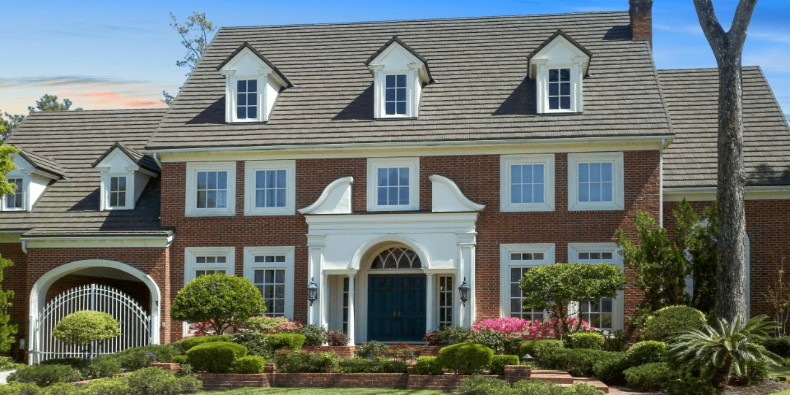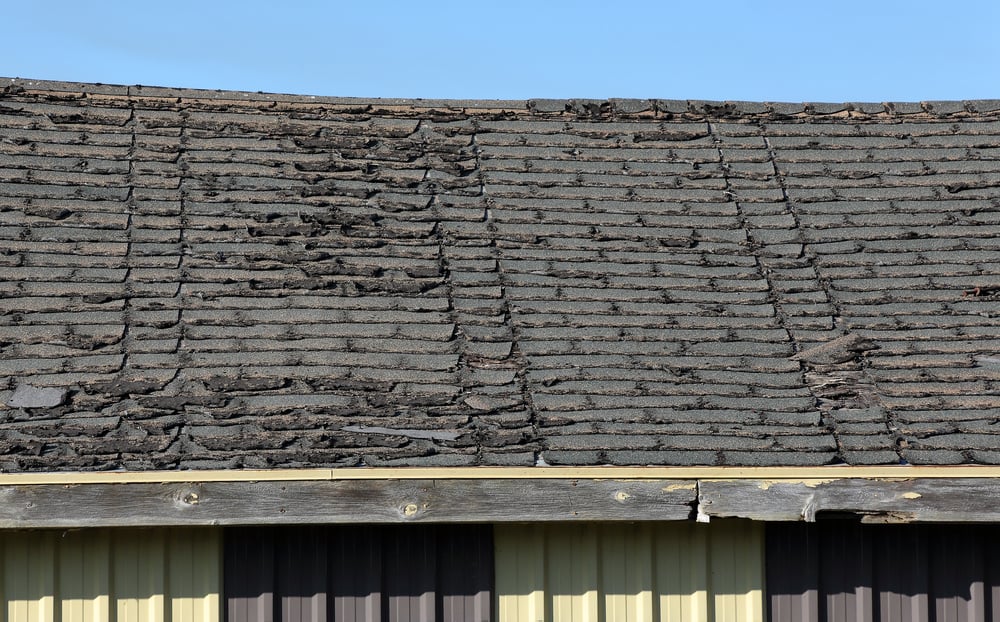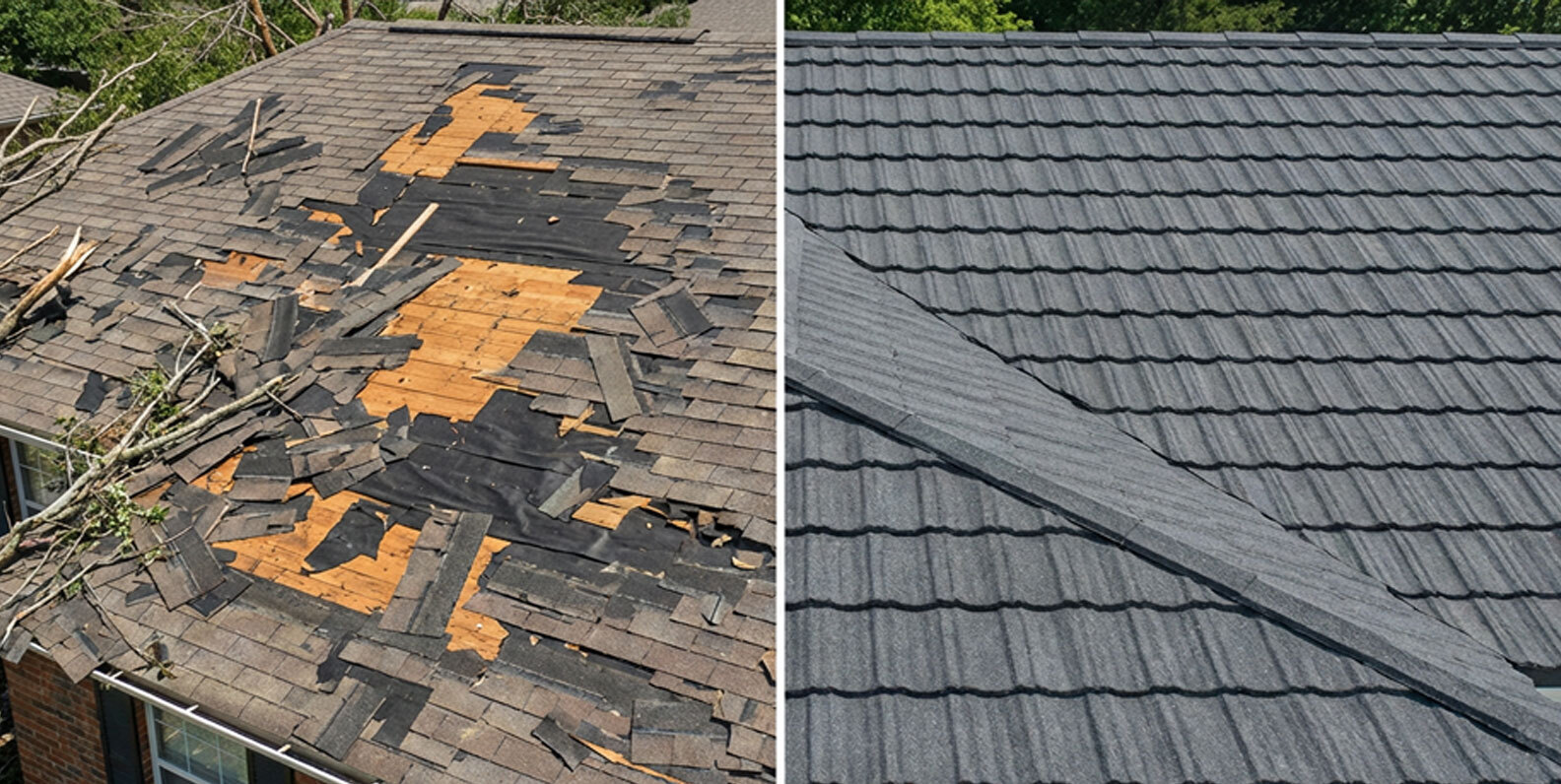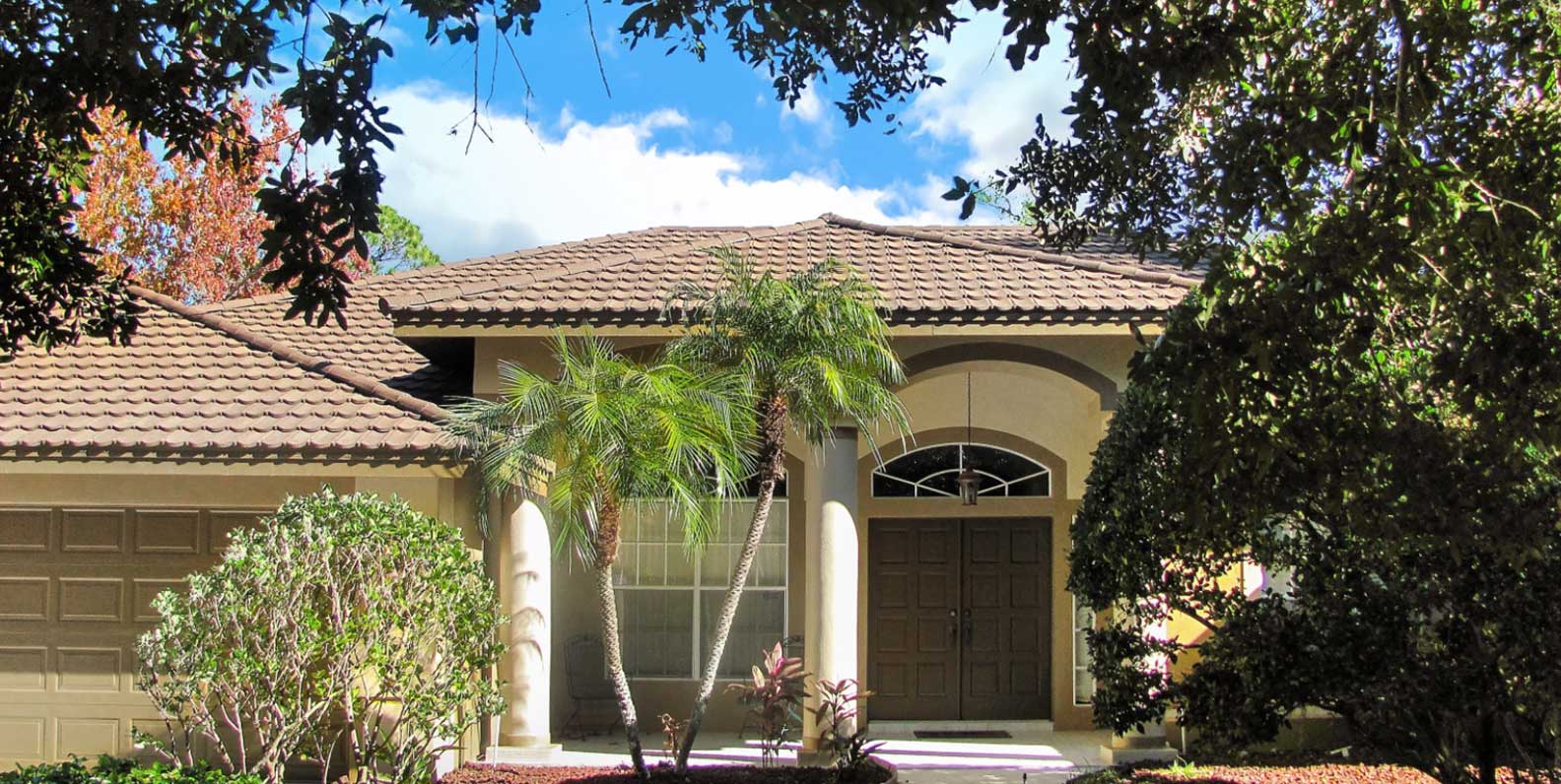Metal roofs are one of the most durable, long-lasting and energy-efficient roofing materials on the market, but the lightweight advantages of metal roofs are often overlooked.
Many homeowners are surprised to learn that metal roofs are one of the lightest roofing materials, especially since metal roofs last two to three times longer than traditional roofing materials. Some quick stats:
- Metal Roofing: Weigh up to 1.6 lbs. per square foot
- Wood Shingles/Shakes: Weigh up to 4.5 lbs. per square foot
- Asphalt Shingles: Weigh up to 4.3 lbs. per square foot
- Clay or Concrete Tile: Weigh up to 6 -11 lbs. per square foot
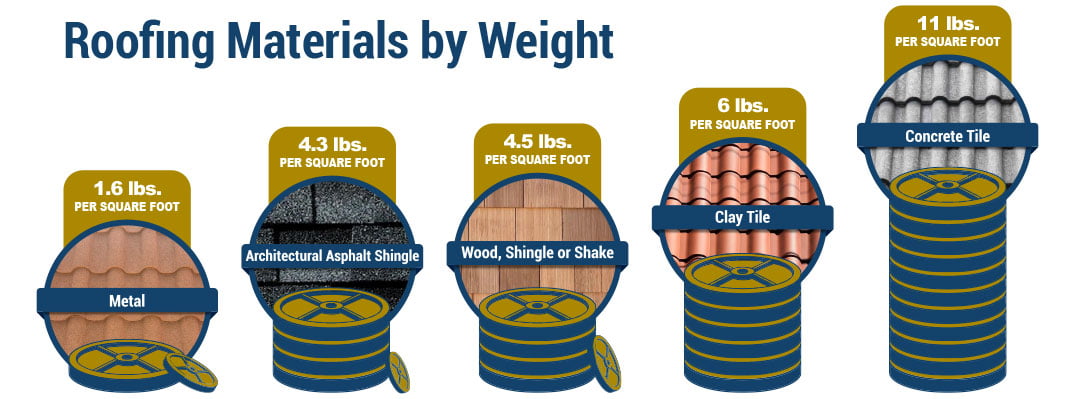
Here’s how a lightweight metal roof eases the burden not only on a building structure, but also roofing contractors and homeowners.
Why does the weight of the roof matter?
Shear strength is the ability to resist forces that cause the internal structure to slide against itself. For example, in a reinforced concrete beam, the main purpose of the reinforcing bar (rebar) is to increase the shear strength. In roofing, the forces pushing on the structure are typically caused by hurricanes, tornadoes, earthquakes and severe storms. A building bearing an excessively heavy roof load is considered top-heavy and prone to side forces.
Metal roofs contribute reinforcing shear strength to the underlying roof deck without piling on excess weight at the top of the building envelope where it is the least desirable. This is extremely advantageous for both contractors and homeowners for several reasons.
Take roof-overs, for example. Roof-overs are the fastest and most cost-effective way to upgrade your roof, however, building codes have strict limits when it comes to the weight of the roof.
A roof-over is when a layer of new roofing is placed over the existing roof. A roof replacement is when the existing roofing and underlayments are completely removed from the roof, exposing the deck.
Heavy roofing materials pile excessive weight up at the top of the home, adding to the roof load and the construction materials required to support it. For instance, asphalt shingles can add another 15,000 pounds (on a 30 square roof) to the roof and are too heavy to be considered a viable option for a roof-over. Clay tiles are also ruled out since they can absorb up to 15% of their weight in moisture, adding weight stress to the supporting roof structure.
On the other hand, lightweight metal roofing contributes reinforcing strength to the roof deck, while weighing only 4,500 pounds (on a 30 square roof), and can often eliminate the need for a complete tear-off of the existing roof (aka a roof replacement).
In fact, if local building codes permit, metal roofs can be installed directly over an existing roof while still remaining well within the “dead load” limits of the local building codes (dead load refers to the weight of the roof structure, plus any permanently attached structures).
>>>Related Resource: Here's what you need to know about roof-over vs. roof replacement.
For new construction, a lightweight metal roof design can keep a new home or building project on time and even under budget. New homes designed with metal roofing can be built lighter by conserving natural resources, such as lumber for framing and decking.
This simplifies and reduces the amount of load-bearing engineering required to support the roof.
The inherent lightweight nature of metal makes it ideal for roofing since it simplifies engineering and contributes sheer strength to support the entire structure, but the benefits of lightweight metal roofing extend beyond just construction.
Benefits of Lightweight Metal Roofing
Regardless of what region you are in, a lightweight and element-resistant roof has the strength to protect your home from nearly anything Mother Nature has to offer with surplus strength to support:
- Snow Loads: Homeowners in snow-prone regions require a roof with surplus strength to accommodate the weight of heavy snow and ice.
- Solar Power: Roof-mounted installations, such as solar power panels and racks, require surplus strength.
- Earthquakes: Lightweight DECRA stone-coated steel provides extra shear strength to the roof deck to withstand tremors in seismically active regions like Costa Rica. Conventional materials, such as heavy asphalt shingles and clay tiles only add dead weight, resulting in a top-heavy home with minimal extra roof reinforcement.
As one of the strongest roofing materials on the market, metal roofing comes with an extensive list of other benefits as well, including:
- Hail: Highest Class 4 impact rating.
- Fire: Highest Class 4 fire rating.
- Hurricanes, Tornadoes and High Winds: Miami-Dade County in Florida has the strictest building codes in the nation due to the constant landfall from hurricanes. Even if you’re not in Florida, look for a roof that meets high-velocity hurricane zone requirements for top-tier protection from wind.
- Salt Air and Humidity: Check that the roofing material can resist rust and oxidation in moist and humid salt air environments.
The benefits of metal roofing don’t stop there. The durability and energy efficiency of metal roofing provides homeowners with an extremely high ROI and a sustainable roofing product that boasts benefits such as:
- Lasting two to three times longer than traditional roofing materials, such as asphalt shingles.
- Providing energy savings as high as 25%.
- Offering insurance discounts in many states. For example, in Texas, a metal roof can lower your homeowner's insurance by up to 35% (check with your local insurance carrier for available discounts).
- Increasing a home’s value by up to 6%.
- Producing environmentally-friendly construction that is 100% recyclable.
Lightweight DECRA Metal Roofing
DECRA Metal Roofing has protected homes and buildings since 1957 and our state-of-the-art manufacturing facility is located right here in Corona, California. As the original stone-coated metal roofing manufacturer, DECRA has set the industry’s gold standard for durability and longevity.
If you’re looking for a lightweight, durable and long-lasting roof, you’re looking for a DECRA roof. Ready to see and feel the DECRA difference? Click here to order a free sample.

